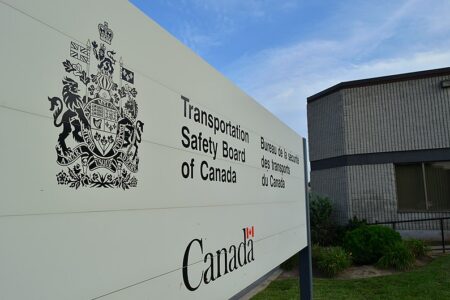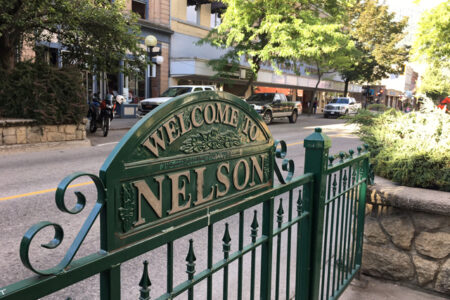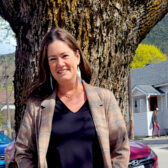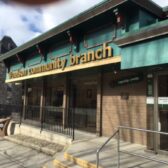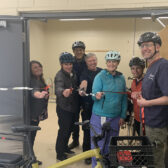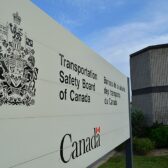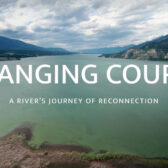Basin programs boost employment while reducing wildfire risk
Wildfires have hit rural communities in the Columbia Basin hard, and the economic impacts of the COVID-19 pandemic have negatively affected people living here.
To provide employment while taking preventative measures to reduce the risk of wildfires, 12 projects in 10 rural communities are receiving $1.2 million to create 93 jobs that improve community resilience to wildfire.
The program is a partnership between the Province of British Columbia and Columbia Basin Trust.
The funding comes from the Columbia Basin Economic Recovery Initiative, which is part of the Province of B.C.’s Crown Land Wildfire Risk Reduction program.
The initiative is a partnership between the Ministry of Forests, Lands, Natural Resource Operations and Rural Development (through the BC Wildfire Service) and Columbia Basin Trust (which is administering the funding).
“During last year’s devastating wildfire season I was able to see firsthand the impacts FireSmart practices had holding back the flames from the community of Logan Lake,” said Katrine Conroy, Minister of Forests, Lands, Natural Resource Operations and Rural Development.
“In the face of climate change, year-round efforts like this partnership with Columbia Basin Trust are needed to reduce wildfire risk so communities here in the Columbia Basin can remain vibrant and resilient.”
Projects supported, including programs near Nakusp and Ymir, will create jobs to help rural communities become more resilient to wildfire threats.
Activities will include: addressing the seven FireSmart principles; managing fuel on provincial Crown land, First Nations land or land owned by local governments; and supporting short-term training or capacity-building activities so communities can better identify wildfire risks and implement solutions.
Funding recipients may be local governments, First Nations, non-profits, community associations or post-secondary institutions.
“Communities of the Basin have experienced extremely challenging wildfire seasons, and this program will help reduce future risks while at the same time creating employment opportunities for residents” said Johnny Strilaeff, President and CEO, Columbia Basin Trust.
“By making rural communities more resilient to wildfire we improve public safety and protect homes and critical infrastructure. These actions will also help the region become more resilient to climate change, which residents have told us is a priority and which we incorporate into our work in the Basin.”
This program also had a successful first intake in 2021, supporting 17 projects that created over 200 jobs in 14 communities with $1.9 million in funding. Many of those projects will help reduce wildfire risks in the 2022 wildfire season.
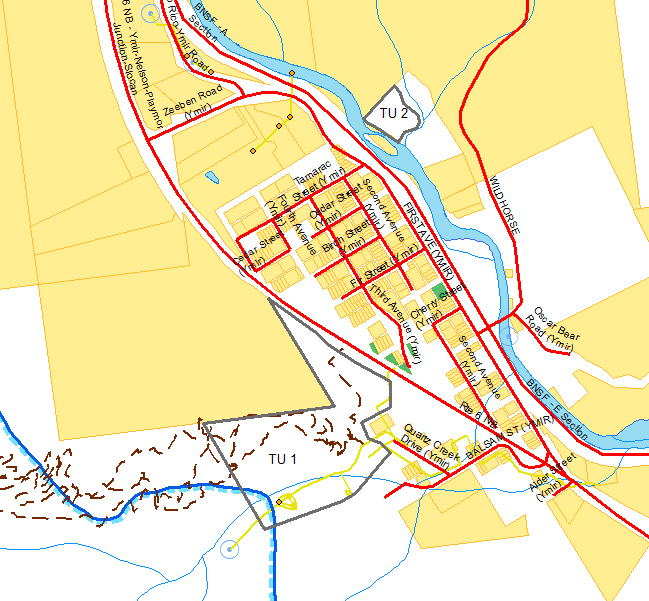
The Ymir Community Association is hiring crews to develop fuel reduction plans for two areas totalling 12.5 hectares.
Here are a few of this year’s recipients:
A small location takes big action – Ymir
Ymir, located 30 kilometers south of Nelson, is a great place to live and enjoy the great outdoors — but both buildings and trails could be threatened during a wildfire.
The Ymir Community Association is hiring a registered professional forester, archeologist and work crews to develop fuel reduction plans for two areas totalling 12.5 hectares, remove fuels like underbrush and shrubs, and create signs that will make people more aware of wildfire risks and encourage them to take care of their surroundings.
“Recently, more than ever, we have all been discussing what the next steps should be in protecting Ymir’s residents and businesses from the obvious danger of wildfires,” said Janice Perello, President.
“This project will not only serve as an important fuel reduction and management necessity but will also give the people a feeling of protection and security in areas that are enjoyed by many residents during outdoor activities.”
Dedicating a position – Nakusp
Wildfire came close to the Village of Nakusp in summer 2021, so the community knows all too well the need to plan ahead and focus on fire prevention.
The Village of Nakusp is hiring a dedicated FireSmart Coordinator who will promote FireSmart principles and activities and provide wildfire-related information to the Village so it can make informed decisions.
“Wildfire presents the single greatest threat to Nakusp. Although the Village of Nakusp has been participating in FireSmart programs since 2017, the events of 2021 reinforced the need for greater municipal involvement in these activities,” said Mark Tennant, Director of Finance.
“The new position will increase the Village’s capacity to provide public education about wildfire resiliency and to liaise effectively with stakeholders to coordinate the local response in case of wildfire.”
Cleaning up a rural spot – Golden
Blown-down trees and a bark beetle outbreak have created a lot of wildfire fuel in a rural area near Golden. The Golden District Rod and Gun Club (GDRGC) is hiring for seven positions to develop a prescription plan and treat the area to reduce wildfire risk, protecting people, nature and properties.
“This project is aimed at proactively managing the interface zone of the GDRGC woodlot in a way that will reduce wildfire intensity and will enhance winter range habitats for local wildlife,” said Brian Gustafson, Executive Director.
“We have the long-term vision to expand the management of our woodlot in a manner that makes these ecosystems more resilient to wildfire and a changing climate.”
Ranchers and farmers increase their abilities – Cranbrook and area
Farmers and ranchers are often some of the first people on site during a wildfire.
The Kootenay Livestock Association is making them even more prepared for this situation — and helping decrease the likelihood of it in the first place — by hiring Wildfire Mitigation Specialists to teach agriculture producers how to reduce the risk of wildfires and develop individual wildfire plans.
“Wildfire risk mitigation has been an ongoing priority for agriculture producers in the region, and this project targets key steps towards building wildfire resiliency capacity in rural areas,” said Tanya Molle, Office Administrator.
“Resiliency is about bouncing back, and initiating and managing wildfire mitigation work on a farm or ranch means a potential ‘bounce back’ from a wildfire incident is significantly reduced.”




